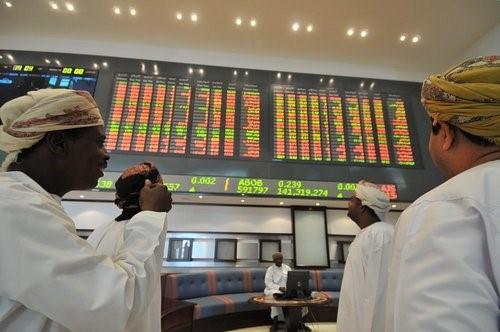
Oman stock market more sensitive to large oil price changes, says IMF
The IMF paper investigated the effect of oil price changes on the GCC stock markets. 'When considering the asymmetry with respect to the magnitude of oil price variation, we find that Oman's and Qatar's stock markets are more sensitive to large oil price changes than to small ones', it said.
Contrary to conventional wisdom, the IMF paper revealed that the GCC stock markets do not have similar sensitivities to oil price changes.'The relationship between oil price and the stock market can be considered asymmetrical, as well as regime switching, with respect to the magnitude of oil price changes in Oman and Qatar. This implies that, in these two countries, large oil price changes exert a greater impact on stock returns than small oil price variations do', the paper said.
The IMF working paper titled 'Oil Prices and GCC Stock Markets: New Evidence from Smooth Transition Models' said Bahrain's stock market is surprisingly insensitive to large oil price changes. In Kuwait and Saudi Arabia, stock market reactions are only significant for large oil price deviations, although the estimated threshold values are not significant.'These dissimilarities, in terms of stock market reactions, confirm that GCC countries still differ in their levels of dependency on oil, especially in their efforts to diversify their economies through structural reforms', it said.
The IMF said the research results highlight the importance of economic stabilisation and reform policies in the GCC markets that can potentially reduce the sensitivity of stock returns to oil price changes, especially with regard to the existence of asymmetric behaviour.'Ongoing and expected structural reforms are important because they serve to diversify the economic base and increase non-oil sources of financing, thereby reducing the expected sensitivity of non-oil growth to oil-related influences over time,' it said.
According to the IMF paper, in more recent years, GCC countries have loosened restrictions for foreign investors and implemented a wide range of legal, regulatory, and supervisory changes to strengthen market transparency. This financial liberalisation has contributed to the further development of formal stock markets in the region.'From an investment strategy perspective, our results underscore the importance for market participants to consider differences in the sensitivities of stock returns to oil prices across GCC countries when deciding on the compositions of international stock portfolios', the IMF paper added.

Legal Disclaimer:
MENAFN provides the
information “as is” without warranty of any kind. We do not accept
any responsibility or liability for the accuracy, content, images,
videos, licenses, completeness, legality, or reliability of the information
contained in this article. If you have any complaints or copyright
issues related to this article, kindly contact the provider above.


















Comments
No comment